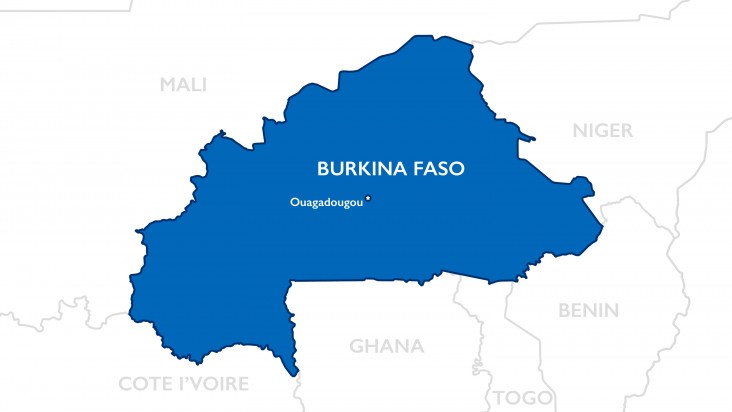- What We Do
- Agriculture and Food Security
- Democracy, Human Rights and Governance
- Economic Growth and Trade
- Education
- Environment and Global Climate Change
- Gender Equality and Women's Empowerment
- Global Health
- Humanitarian Assistance
- Transformation at USAID
- Water and Sanitation
- Working in Crises and Conflict
- U.S. Global Development Lab
Speeches Shim

To mitigate the destabilizing effects of ongoing terrorist violence and insecurity, by building trust within communities and with local officials, and enabling economic opportunities for vulnerable populations.
WHY USAID/OTI IS IN BURKINA FASO
Burkina Faso’s deteriorating security context has threatened developing democratic achievements and created one of the world’s worst humanitarian situations. Armed groups, including violent extremist organizations (VEOs), organized criminal networks, and militant organizations, have exploited the existing demographic, political, and environmental tension points, and forced Burkinabe government officials and security forces to depart from large areas of northern and eastern Burkina Faso. The inability of government security forces to counter the spread of insecurity further strained the country’s limited resources and its institutions and resulted in a vast increase in internally displaced persons, mass closure of health centers and schools, and the outright abandonment of any government entity in some areas. USAID/OTI programming directly supports U.S. Government strategy by rapidly responding to the needs of communities on the front lines of the conflict.
USAID/OTI’S ROLE IN BURKINA FASO
The Burkina Faso Regional Program (BFRP) works to mitigate the destabilizing effects caused by continued violence and insecurity by targeting strategic communities in northern and eastern Burkina Faso to find locally-led solutions that address the most pressing sources of instability, focusing on:
-
Supporting and empowering community leaders;
-
Mitigating livelihood disruption and fostering economic opportunities;
-
Revitalizing traditional community mechanisms; and
-
Enabling critical local service delivery.
PROGRAM HIGHLIGHTS
- BFRP implemented 25 activities to facilitate local commercial interactions and foster economic opportunity. These activities, which reached 3,500 beneficiaries, including 1,400 women, facilitated trade through grouped orders, mobile payments, and local trader networks, reducing the need to move from one locality to another in search of resources and limiting the risk of contact with VEOs. In the Sahel region, more than four local merchants’ networks now combine resources to maximize economic opportunities.
-
BFRP is providing more than 80,000 national identification documents to vulnerable Burkinabe in insecure areas in response to increased security checkpoints and curfews. Not carrying national identification documents could result in detention, disrupted livelihoods, and increased tensions between communities and state security. The provision of these critical documents improves government and citizen relations and trust by enhancing the government’s service delivery capacity, allowing traditionally marginalized communities to participate in the upcoming elections, and reducing the ability of VEOs to recruit disenfranchised locals.

Comment
Make a general inquiry or suggest an improvement.